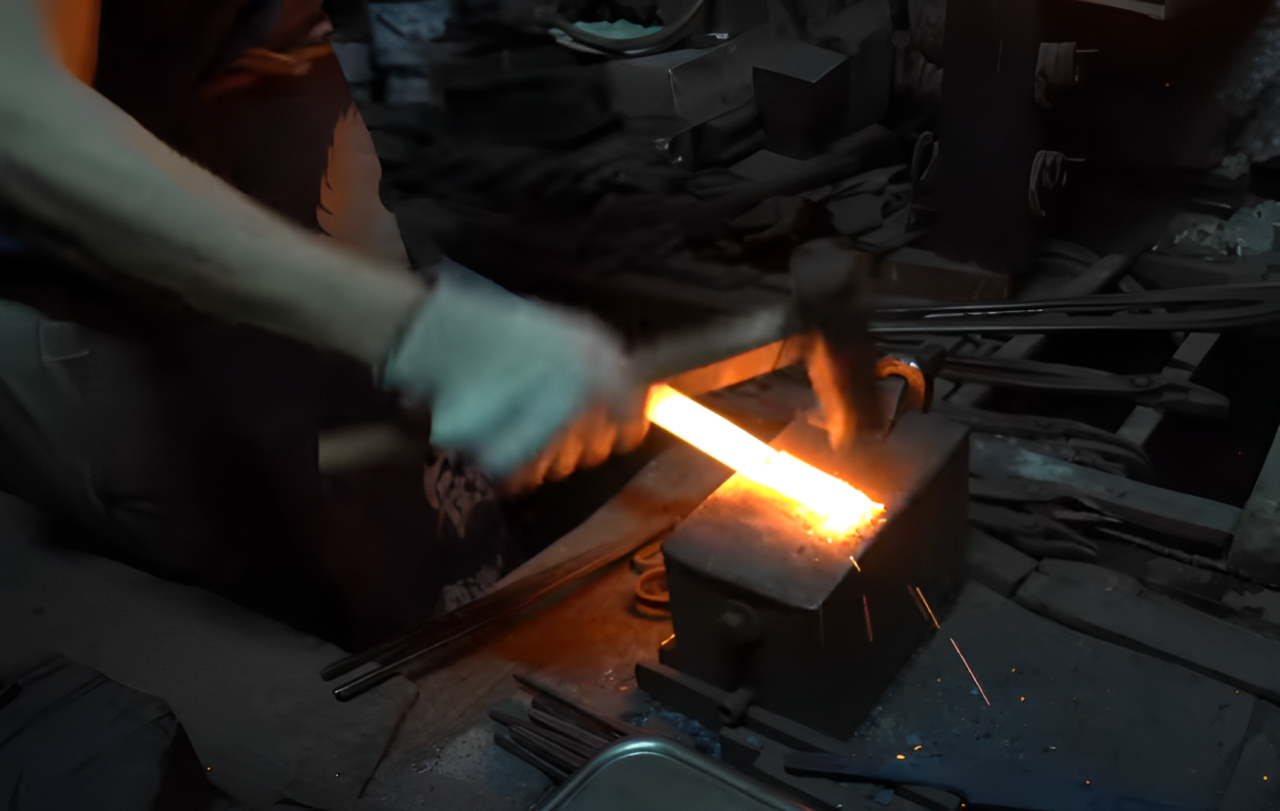
Differences Between Handcrafted Knives and Mass-Produced Factory Knives
-
There are two main types of knives: those carefully crafted by hand by artisans and those produced in large quantities by factories. Each type of knife differs significantly in terms of manufacturing process, quality, sharpness, durability, cost, and individuality.
-
Manufacturing Process
-
Handcrafted Knives:
- Each knife is uniquely created by a few skilled artisans.
- Blades are forged using traditional methods, involving hand-heating and shaping of the metal.
- Exceptional attention to detail is maintained at every step.
- The labor-intensive process results in highly durable knives.
- Each knife reflects the artisan's skill and care.
-
Mass-Produced Factory Knives:
- The manufacturing process is automated, allowing multiple knives to be produced simultaneously.
- Blades are shaped and sharpened using automated machines.
- Production lines are efficiently managed, enabling a large number of knives to be produced in a short time.
- These knives are often made through press forging, a technique that allows for rapid production but may sacrifice some of the unique qualities of handcrafted items.
Quality
-
Handcrafted Knives:
- The quality of each knife is a direct result of the craftsmen's extraordinary skill and experience.
- Every knife is crafted with meticulous attention to detail.
- Consistently high quality is ensured through the personal touch of the craftsman.
-
Mass-Produced Factory Knives:
- Standardized processes are used to maintain a consistent quality.
- However, variations in quality control can lead to differences between individual products.


Sharpness
-
Handcrafted Knives:
- Knives are hand-sharpened by skilled artisans.
- They possess incredibly sharp edges.
- The sharpness is maintained for an extended period.
-
Mass-Produced Factory Knives:
- Factory-made blades are uniformly sharpened, providing good initial sharpness.
- However, the sharpness may dull quickly with use.
Durability
-
Handcrafted Knives:
- Made from premium materials and honed with precision craftsmanship.
- Extremely durable construction.
- With proper care, these knives can last a lifetime.
-
Mass-Produced Factory Knives:
- Durability is average, requiring regular maintenance depending on the frequency of use.
- Some materials and manufacturing methods can lead to quicker wear and susceptibility to rust.

The Unique Value of Handmade Craftsmanship
What we cherish is the value of handmade products. While machine-made items are uniform, those crafted by a skilled artisan carry their unique personality and passion. When purchasing a product, I encourage you to engage with the artisan and feel their thoughts and dedication.
Cost and Price
-
Handcrafted Knives:
- The cost reflects the handcrafting process and high-quality materials.
- These knives are valuable investments.
-
Mass-Produced Factory Knives:
- Low production costs result in relatively inexpensive prices.
- Often purchased as consumable items.
Individuality
-
Handcrafted Knives:
- Each knife has unique features and characteristics due to the handcrafting process.
- The individuality showcases the artisan's skill and passion.
- Every knife is a personal and distinctive work of art.
-
Mass-Produced Factory Knives:
- Designs and shapes are standardized, resulting in little individuality between knives.

A Knife Infused with the Spirit of Craftsmanship, Beyond What Machines Can Mimic
The artisans pour their passion into creating knives that exist on an entirely different level from what machines can produce. Driven by the conviction, "If we don’t create quality, we can’t survive," they dedicate meticulous effort and skill into every single blade, embodying a commitment to uncompromising craftsmanship. This devotion breathes life into each knife, reaching the hands of the user—this is the true essence of handcrafted mastery.
Cost or Craftsmanship? The Crossroads of Choosing Your Knife
-
Mass-produced factory knives and handcrafted knives each have their advantages and disadvantages. While factory knives are easily accessible and offer high cost-performance, they often come with limitations in quality and durability.
-
On the other hand, handcrafted knives represent a true investment in quality and longevity. Made with meticulous care and expertise, these knives offer unparalleled craftsmanship and durability, providing a lifetime of exceptional performance. Choosing between them depends on your needs and budget, but opting for a handcrafted knife means embracing a piece of art that enhances your cooking experience and stands the test of time.
The Artisan’s Edge: Handcrafted vs. Factory Knives
-

Handcrafted knives carry the spirit of the artisan—unique in character, shaped and sharpened by skilled hands for enduring sharpness and long-term value.
Factory-made knives, while consistent and affordable, offer uniform performance that is practical yet ultimately replaceable. -

The Soul of Craftsmanship
-
Choosing Quality Over Quantity
Delivering knives of true quality is far more demanding than simply increasing production numbers. The higher the standards we set, the more limited our output becomes—that is the unchanging reality of genuine craftsmanship.
-
For example, among custom knife makers, a waiting period of one to two years is not unusual. Each knife is carefully forged, sharpened, and finished as a one-of-a-kind creation, and such work cannot be rushed without sacrificing integrity. While we wish to share our knives with more people, expanding production without compromising quality is a challenge that cannot be easily overcome.
-
That is why we place quality above all else. Every blade we craft carries the weight of our dedication and the soul of our tradition. And it is thanks to customers who truly appreciate this value that we can continue our work with pride, passing on the spirit of Japanese craftsmanship to the future.
-
Be Cautious with Inexpensive Knives
-
Buying a cheap knife may mean that the steel used is of low quality. Low-quality steel tends to lose its sharpness quickly, which can ultimately reduce the efficiency of your cooking tasks.
At KIREAJI, we provide authentic Japanese knives crafted by trusted craftsmen from knife-making workshops in Sakai City. Each knife is handcrafted with care, ensuring you receive a reliable and high-quality product that brings peace of mind. -



